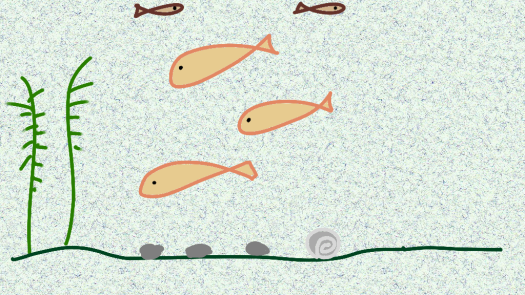
Look at the picture above - what do you see?
We are far more influenced by small things than we realise.
It turns out, for example, that we are more likely to be generous after lunch than before, think a person is more warm and approachable if handed a warm cup of coffee by them than a cold drink or be affected positively or negatively by the words we hear.
We also don't realise how important the situation is in affecting what happens next.
This is called context blindness and it happens all the time.
We ascribe people's actions often to who they are as people - their personalities and traits - rather than the situation they find themselves in.
We believe murderers are bad people, while the murderers themselves think of their crime as something they had to do in that situation.
We see Warren Buffett and Bill Gates as super-smart people who created their own futures, rather than average people who had a series of helpful experiences that set them up for stock investment and technology startups.
This is called the fundamental attribution error and, in his book Mindware: Tools for Smart Thinking, Richard Nisbett describes how culture may have an impact on how often we make the error.
Going back to the picture, if you're from the West (particularly American), you probably noticed the three big fish swimming to the left, then the smaller fish, vegetation and some of the other parts of the picture.
If you're from the East (particularly Japanese), you probably noticed the stream, vegetation, rocks and shells and three big fish swimming to the left.
Apparently, people from the East pay more attention to context than those from the West, and Nisbett speculates that this, as with many things, goes back to the Greeks.
The Greeks have a tradition of intellectual independence, possibly developed as a result of their geography and economic features, and laid the foundation of scientific thinking as we know it now.
The East had a more holistic approach - with interdependent economics and value systems that required a large population to cooperate and subsume their personal interests to that of society as a whole.
Independent Western thinkers, as a result, believe that people have complete control over their actions, and so if they get it right or wrong do so as a result of who they are.
Easterners, on the other hand, are more likely to give people the benefit of the doubt and take their situation into consideration.
This small difference in mindset has a large impact in many areas.
People who believe that criminals are inherently bad and should be locked up may be unable to see the benefits of how changing the environment those people are in could change their future.
People may have become conditioned to think that they can only do certain jobs, but find new opportunities when they move cities or find new friends.
Life isn't static - just because things are the way they are now that doesn't mean that is the way they always will be.
Changing our context is the first step to changing our reality.
To the question in your title, my Magic 8-Ball says:
Hi! I'm a bot, and this answer was posted automatically. Check this post out for more information.